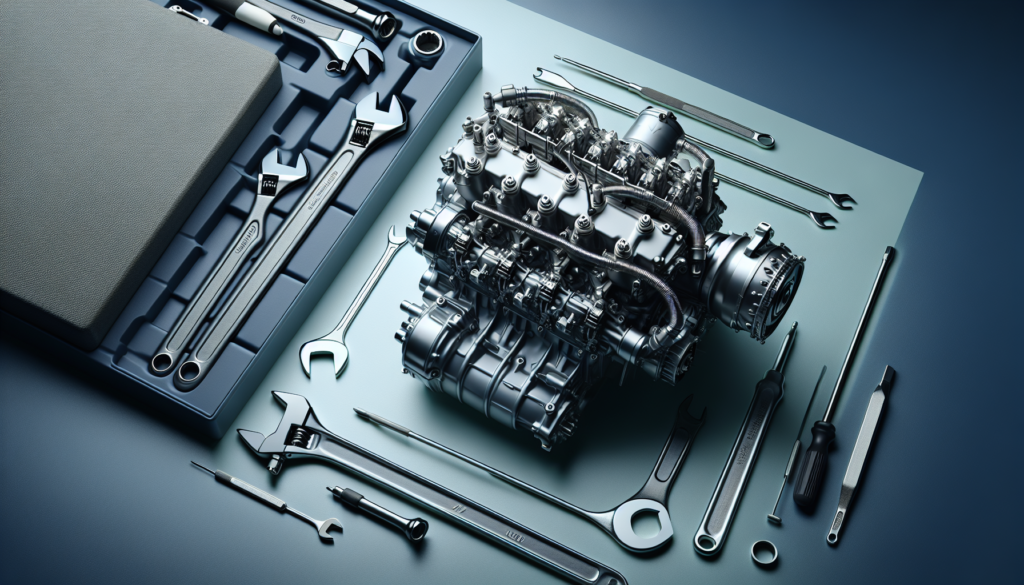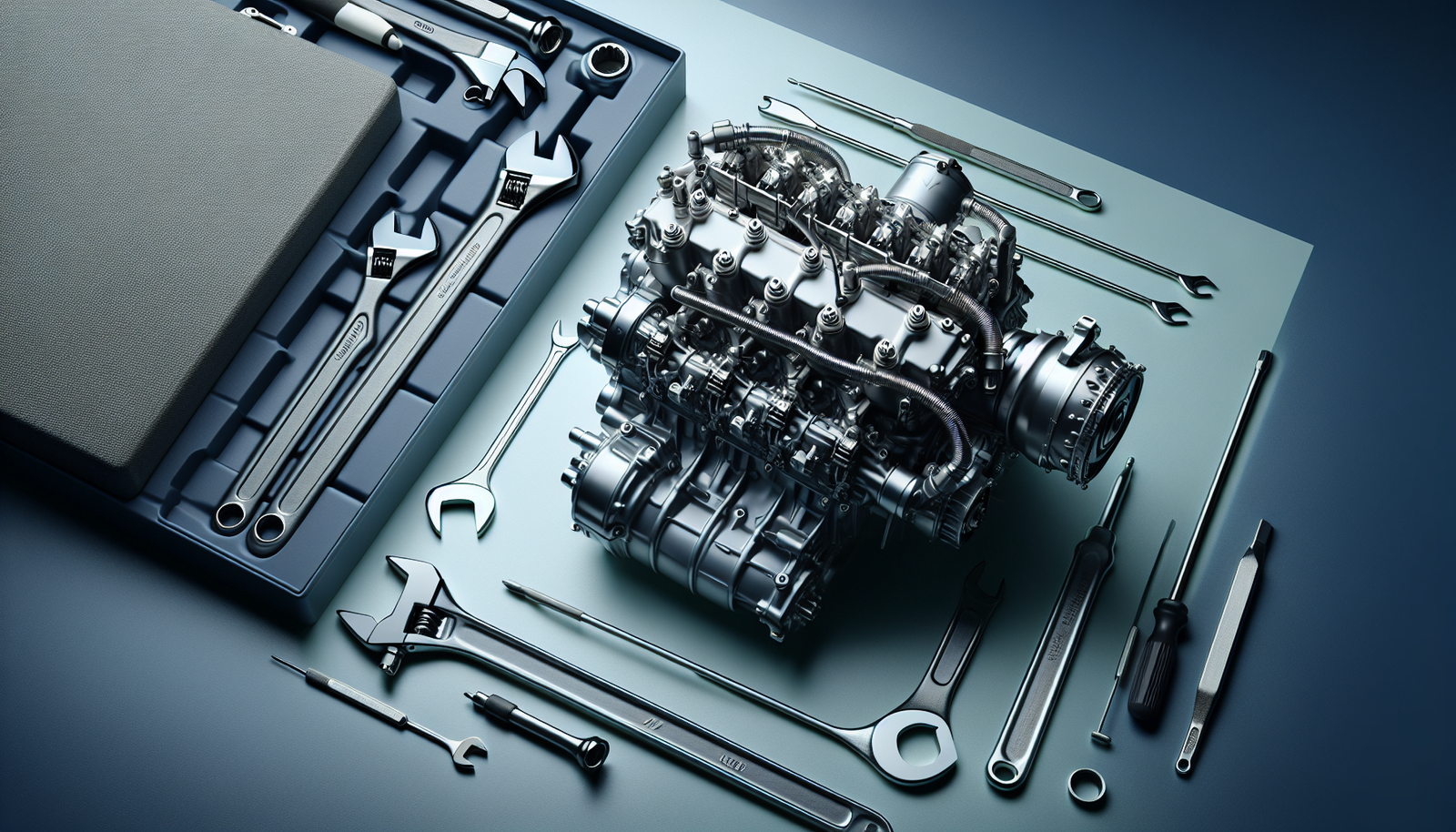Imagine soaking up the sun on your boat, the wind rustling your hair, then suddenly, your engine sputters and dies. Frustrating, isn’t it? Fear not, because you’re about to embark on a journey through “Quick Fixes For Minor Boat Engine Problems”. This enlightening read will equip you with the knowledge to handle those pesky engine issues that might interrupt your peaceful day out on the water. With easy-to-follow instructions and handy tips, you’ll be able to whip your boat engine back into shape in no time. Bring on the high seas – you’re ready for smooth sailing!

Understanding Your Boat Engine
Just like a car or any other vehicle, your boat’s engine is its heart. Knowledge about what type of engine you have, its key components, and basic terminology can go a long way in maintaining your boat’s health and handling issues that may arise.
Identifying Different Types of Boat Engines
The first step to understanding your boat’s engine is to know its type. They can be broadly categorized into two types – Outboard and Inboard engines. Outboard engines are portable, external engines mounted on the stern, best suited for small to medium-sized boats. Inboard engines, on the other hand, are located inside the boat, designed for larger watercraft, and can handle more horsepower. There are also variations like Sterndrive or Inboard/Outboard (I/O) engines that combine the best of both worlds.
Knowing Key Engine Components
Your boat’s engine has many components, but some key ones you need to be familiar with include the carburetor, which mixes air and fuel; the impeller, which pumps water for cooling the engine; and the propeller, which moves your boat forward by pushing water backward.
Understanding Basic Engineering Terminology
Being familiar with engine terminology will help you identify, troubleshoot, and communicate any issues. Horsepower (HP) tells you the engine’s power. A higher HP means a more powerful engine. RPM (Revolutions Per Minute) measures engine speed – higher RPM means the engine is running faster.
Common Signs of Engine Trouble
Being vigilant about your boat engine’s performance is important to nip any problems in the bud. There are several signs that may indicate engine trouble.
Sudden Change in Engine Performance
If your boat suddenly starts to perform differently, it may be a sign of engine trouble. Maybe your boat isn’t cruising as smoothly as it once did, or is unable to reach the speeds it normally does. These could indicate issues like poor fuel quality, propeller damage, or possibly something more serious.
Unusual Noises from the Engine
Your boat’s engine usually hums along fine, but if it starts making strange noises, that’s a warning. Knocking, popping, or grinding noises could imply problems with your engine’s components and should be checked immediately.
Smoking or Overheating
If your boat engine starts smoking or gets overheated, that’s a major sign of trouble. This could mean that your cooling system isn’t functioning properly, or there might be issues with the oil levels or the engine’s internal components.
Difficulty in Starting the Engine
Having trouble starting your engine is not only frustrating but could also be a sign of serious issues with your boat’s electrical system, ignition, or fuel delivery system.
Quick Fixes for Starting Issues
Engine starting problems are common, but fortunately, they can often be easily resolved.
Checking the Battery Connection
If your engine won’t start, the first thing to check is your battery connection. Ensure that it’s properly connected, clean, and free of corrosion.
Inspecting the Ignition System
If the battery is fine, turn to the ignition system. Make sure the key switch, safety lanyard, and neutral safety switch are all functional.
Verifying Fuel Delivery System
If everything else looks good, inspect your fuel delivery system. This includes checking the fuel line for leaks or blockages, and ensuring that the fuel tank has gasoline.

Solving Overheating Problems
Overheating is a clear sign that your engine is working too hard, and if left unchecked, it could result in engine failure.
Inspecting the Cooling System
Start with inspecting the cooling system. Make sure the water pump is working and the coolant levels are adequate.
Checking for Blockages in the Cooling System
If your engine continues to overheat, there could be blockages in the cooling system. Inspect the raw water inlet, strainer and discharge hoses for any debris which might be stopping the water flow.
Verifying Water Pump Function
Finally, check for a failing water pump. If the impeller is worn out, it will not be able to pump sufficient water, leading to overheating.
Dealing with Vibrations and Unusual Noises
If your boat’s engine is vibrating excessively or making unusual noises, don’t ignore it.
Inspecting the Propeller for Damages
The propeller should be your first point of inspection. Even minor damage like small dents or bent blades can cause vibrations and noises.
Checking Engine Mounts
Vibration issues could also be due to loose or worn engine mounts. While these play an important role in absorbing engine vibrations, over time, they may need adjusting or replacement.
Investigating Drive System
If vibrations and noises persist, it’s time to take a closer look at your drive system. The drive shaft, couplings, or bearings could be damaged or misaligned.
Addressing Low Power and Loss of Speed Issues
Loss of power and speed can usually be attributed to issues with fuel, air intake, or the propeller.
Verifying Fuel Quality and Availability
Firstly, check the quality and availability of your fuel. Old or contaminated fuel can reduce the engine’s performance. Always use the recommended type and quality of fuel for your boat’s engine.
Inspecting the Propeller
Next, inspect your propeller for any damage, as it plays a crucial role in your boat’s movement. A damaged propeller can affect the boat’s speed and maneuverability.
Examining the Air Intake and Exhaust System
Lastly, have a look at your engine’s air intake and exhaust system. Blockages here can hinder the air-fuel mixture, resulting in reduced power and performance.
Fixing Poor Fuel Economy
Cheers to longer boat trips if you can improve your boat’s fuel economy.
Checking for Correct Propeller Size and Pitch
Incorrect propeller size and pitch can result in inefficient fuel burn. Make sure your propeller is the right size and pitch for your boat’s make and model.
Verifying the Hull’s Cleanliness
A dirty hull creates more drag, meaning the engine must work harder and use more fuel. Ensure your hull is clean to optimize fuel efficiency.
Maintaining the Right Engine Speed
Maintaining an optimal cruising speed instead of continuously speeding up and slowing down also helps improve fuel economy.
Troubleshooting Steering Problems
Identifying and troubleshooting steering problems early can save a lot of trouble on the water.
Inspecting Steering System
If you’re having trouble steering, inspect your steering system, make sure all the links and connections are properly secured and lubricated.
Checking for Proper Rudder Alignment
Improper rudder alignment could be a possible reason for steering issues. Ensure the rudder is properly aligned and functioning smoothly.
Verifying Hydraulic Pressure
Finally, for hydraulic steering systems, regular checks of the hydraulic pressure and the system for leaks is vital.
Solving Electrical Problems
Baffled by electrical problems? Here’s what you can do.
Inspecting Wiring and Connections
Start by inspecting your boat’s wiring and connections, look for any signs of damage, corrosion, or loose ends.
Checking the Circuit Breaker
Next, check the circuit breaker for any tripped switches. A tripped circuit breaker may indicate a short circuit or electrical overload.
Verifying Alternator Output
Lastly, verify the alternator’s output. The alternator charges your battery and powers the electrical system, and any issues with it could satisfy your boat’s power demand.
Maintaining Regular Engine Care to Avoid Problems
Early and regular maintenance can save you a lot of trouble, money, and even prolong your engine’s life.
Implementing Regular Engine Checks
Adopt a habit of carrying out Regular Engine Checks. From visual inspections to more detailed system checks, investing time in understanding and caring for your engine will reap benefits.
Using Correct Fuel and Oil
Using the right fuel and oil can impact your engine’s performance significantly. Always follow the manufacturer’s specifications regarding the type and quality of fuel and oil.
Winterizing Your Boat Engine Correctly
If you live in a cold region, Winterizing Your Engine is crucial to prevent any potential freeze damage. Thoroughly cleaning and draining all fluids from your boat, and storing it properly can keep your boat in good condition till the next boating season.
Understanding and caring for your boat’s engine might seem intimidating initially, but with a bit of effort and time, you can keep your boat roaring happily, offering you those stress-free trips on the water you deserve!

